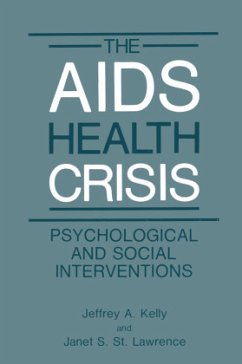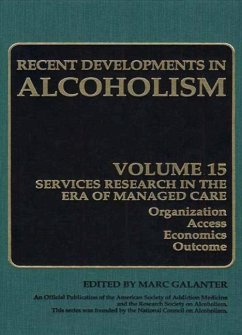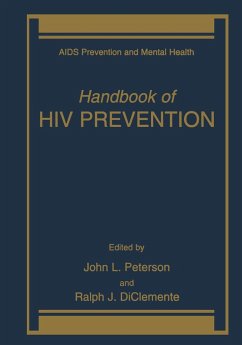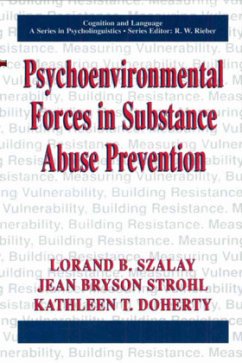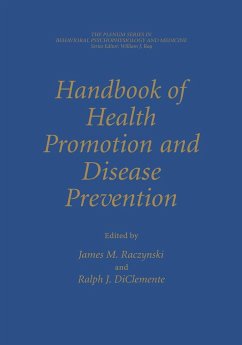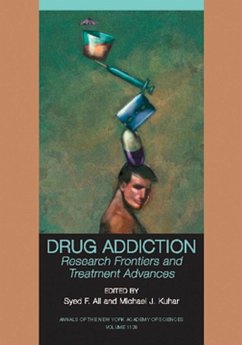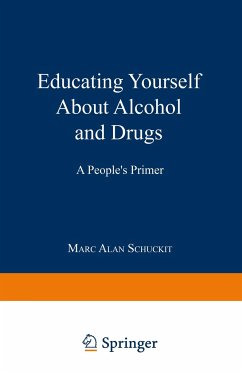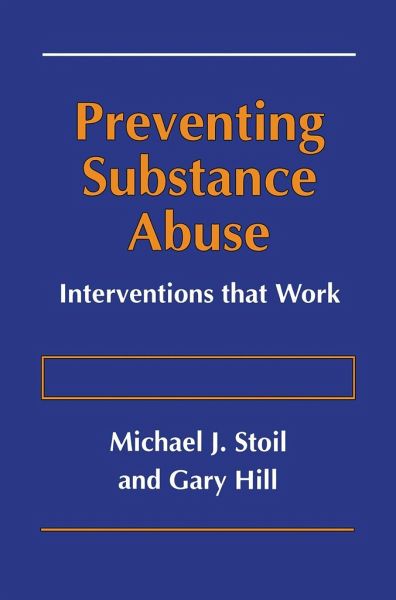
Preventing Substance Abuse
Interventions that Work

PAYBACK Punkte
20 °P sammeln!
Preventing Substance Abuse is an informal guide to successful programs for treating specific substance abuse problems, identifying their origins, implementation, outcomes, and, where possible, contacts for obtaining additional information. The emphasis is on information documented from outcomes of successful interventions rather than on theories of what should work or what works under experimental conditions. Key features include easy-to-follow charts and graphs and an appendix summarizing the National Structured Evaluation (mandated by Congress) of substance abuse prevention.
Preventing Substance Abuse is an informal guide to successful programs for treating specific substance abuse problems, identifying their origins, implementation, outcomes, and, where possible, contacts for obtaining additional information. The emphasis is on information documented from outcomes of successful interventions rather than on theories of what should work or what works under experimental conditions. Key features include easy-to-follow charts and graphs and an appendix summarizing the National Structured Evaluation (mandated by Congress) of substance abuse prevention.



